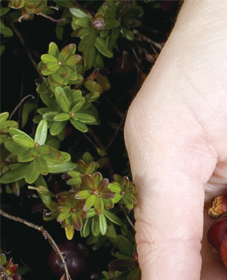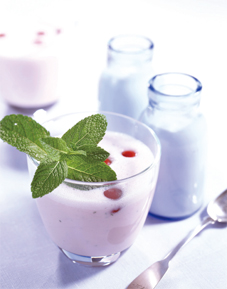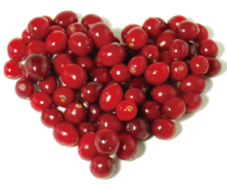
Big benefits from the bog mean these crimson berries are finding their way into a variety of products NEW research confirms that the crimson berry may be small, but its health benefits are large. The latest findings on the potential health benefit of cranberries help substantiate the labelling of this berry from the bog as a "superfruit" and as "superfood". Superfood is a term used to describe food with high phytonutrient content, or generally speaking, food considered especially nutritious or otherwise beneficial to health and wellbeing.1 Given this, we all know superfoods should be incorporated into our diets as much as possible and according to a multitude of research, there is one little, dark red berry that well and truly deserves to stand up and be noticed as a superfood. Cranberries are considered a superfood because they contain unique compounds known as proanthocyanidins (PACs), which prevent certain bacteria from adhering to cell walls. It is this anti-adhesion ability that helps cranberries prevent urinary tract infections, stomach ulcers and even dental plaque. In addition to PACs, cranberries contain other classes of flavonoids with antioxidant properties, called flavonols and anthocyanins, the latter of which give cranberries their rich red colour.

In fact, the cranberry has been shown to contain amongst the highest phytonutrient content amongst 21 commonly consumed fruits and vegetables, and possesses the most potent antioxidant properties.2 It's this powerful combination of antioxidants, coupled with the anti-adhesion effect of cranberries, that makes them so special, and that processors can use to inform consumers why they must start including these berries in their diet. Therefore, it's no surprise that medical and health experts are throwing their support behind cranberries. As Joe Vinson, Ph.D., research chemist at the University of Scranton believes, "Cranberries are loaded with antioxidants and should be eaten more often."3 Cranberry power More than 30 nutrition scientists from leading research institutions worldwide and a variety of prestigious universities presented new findings about the cranberry's antibacterial and anti-adhesion properties at Fourth Cranberry Institute Health Research Conference in October. Promising new areas of research in anti-aging, anti-cancer and protection against cardiovascular disease, metabolic syndrome and type II diabetes were also discussed.

"New studies are continually finding how unique cranberries are, and that their potential health benefits are impressive," said Jere Downing, executive director, Cranberry Institute, the non-profit organisation dedicated to cranberry health research. Studies point to the cranberry's impressive hit list of health benefits: Cranberries and urinary tract health. In the case of urinary tract infections (UTIs), the anti-adhesion effect of cranberries causes bacteria to be flushed out of the urinary tract before an infection in the bladder or kidney can occur. A study conducted found that those who drink cranberry juice or eat cranberries daily can significantly reduce their risk of a UTI by as much as 50%.4 Cranberries and dental health. A study published in the Journal of the American Dental Association reported that the unique "anti-adhesion" properties of cranberries may help in the prevention of the oral bacteria responsible for dental plaque and periodontal disease5, a leading cause of tooth loss. Cranberries and stomach health. Substances found in cranberries can prevent certain bacteria from adhering in the lining of the stomach. Early studies suggest the anti-adhesion effect may be beneficial in preventing the bacteria responsible for stomach ulcerKobe XII 12 Shoes

 iConnectHub
iConnectHub
 Login/Register
Login/Register Supplier Login
Supplier Login



























